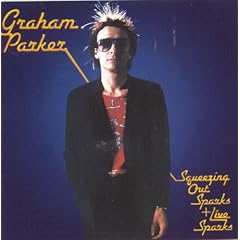The feeling is gone... this means nothing to me.
In college, I knew a girl named Eleanor who was famous for having won a prestigious art scholarship (endowed by Andy Warhol with a selection committee headed by Picasso's long-time mistress). In most years, no student in America was good enough to win the scholarship; in good years, there was one. My year, it that was Eleanor.
She was pretty famous for the scholarship, but even more famous for the cult of personality (which she actively encouraged) that emerged around her. And also the fact that she wore stockings and flapper dresses.
I met her in a class on experimental German cinema and we hit it off. (I impressed her with a bilingual pun about the 15-hour version of Berlin Alexanderplatz.) Then she asked me if I thought the stockings were sexy. I did and told her so. She said she only wore them as an ironic statement. But the sexiness wasn't ironic (even if her awareness and mockery of it was). After class most nights, we'd climb up on the roof of the art building (she had a key, naturally), where she'd smoke Gauloises and we'd both drink generic beer.
She told me about the semester she spent in Vienna and how she'd fallen in love with an impoverished Duke who wrote her sonnets while she filled sketchbook after sketchbook with charcoal drawings of his penis in repose. She claimed that he was impotent and had told her he could only make love again after his family regained their long-lost fortune.
Oddly, this passed for a normal conversation at the time.
Then I'd tell her stories about fin-de-siecle Vienna (a phrase I'd learned just weeks before) and describe the meeting places of the great poets, writers, and artists from nearly 100 years earlier. She'd nod, offer me a cigarette (which I'd always decline), and tell how she'd been to that pub and this cafe, and how the alleyway I'd described had been rebuilt and was now part of some resort hotel.
She invited me one night to this bar downtown that she claimed was hosting a combination "funk night" and 80s video dance party. I couldn't say yes quickly enough, hoping this would lead to our magical moment together (during which she would fall completely and irreversibly in love with me). I spent hours trying to figure out what to wear, going for a combination of splashy and nonchalant, but ultimately looking like the dork I really was (only with mousse in my hair).
Eleanor, as usual, looked amazing (but also as if she'd closed her eyes, reached into her closet and thrown on whatever she touched). The one thing I remember is that she wore huge hoop earrings and a gigantic purse that matched their color.
When we got inside, I slowly realized that Eleanor was only half-right about the music. There were no synth drums or 80s tunes, just hardcore funk jams and long-forgotten R&B songs from the early 70s. Just about then, I noticed two things: we were literally the only White people in the place and Eleanor was completely wasted. She later opened her purse -- which was stuffed with about five pounds of marijuana. "Shhh..." she whispered. "Don't tell anyone."
And then she wanted to slow dance. To James Brown. Perhaps because there weren't enough people staring at us. I remember feeling out of place; her wonderful quirky nature suddenly felt crazy and dangerous. I convinced her to leave after about an hour; ten minutes later, there was a huge fight and two people were stabbed. But I didn't know that until days later.
As we walked home, I just wanted to escape; I'd given up on finding our perfect magical moment together. She stopped in the middle of the block and it took me five steps to realize she wasn't keeping up. I turned to see her posed under a streetlight, looking adorably quirky again. And she waved me over and I forgot to be annoyed with her. And then she gave me the sweetest, most amazing kiss, and I forgot I'd ever been annoyed with her. "I stop the world and melt with you," she declared. And for a few minutes, she really did. (Link for Gmail subscribers):
And there was nothing else in the world that mattered. It was just the two of us, nowhere to go, nothing to do but kiss under a street light. With five pounds of marijuana at our feet. Her arms wrapped around me, my heart wrapped in a world of imaginary grace.
She led me back to her small, dirty apartment off-campus. And while she went into her bedroom to change out of her flapper dress, I looked at her books and her record collection. And we were talking the whole time, even though I was in a different room. It was a fairly typical student apartment. But there was no art -- no drawings, no paintings, nothing to indicate that a prestigious scholarship student lived there.
And then I saw her passport. And picked it up. The photo was amazing, of course.
And she was telling me, from the other room, about Vienna and how she'd felt freer sexually there than she could ever feel in America. And I thumbed through her passport, looking for the stamps. But they weren't there.
I put the passport down just before she came out of the bedroom. And she poured us both drinks and I wondered where she'd been the semester she wasn't in Vienna. And why the lies poured so easily out of her. And why she thought she couldn't impress people just by being herself.
And she kissed me again and it felt great. But it also felt bad. And she asked me if I wanted to go in her bedroom. And I really, really did.
But I knew I couldn't.
Her stories were great. But they weren't real.
And I needed the real thing. Because the fake stuff, no matter how wonderful and titillating and exotic, would soon feel much worse than having nothing at all.
"Can I show you something I learned in Vienna?" she asked. And my body was screaming yes but my heart said no. And I followed my heart.
A few weeks later, Eleanor took off in the middle of the night. She never finished school and the story slowly leaked out over the next several weeks. She hadn't painted or drawn anything in more than 3 years. But her professors were so impressed with her scholarship and her prizes that none of them would fail her even though she refused to do any of her work. They listened to her, watched the crowd around her, and believed. Or at least wanted to believe.
And her "semester abroad"? There were different stories -- she got pregnant; she worked in a coal mine; she walked every mile of Route 66. I wanted to believe every larger-than-life story about her (even though I knew deep down the truth would be simpler, sadder, and far less poetic).
Years later, when I finally got to Vienna, I couldn't stop thinking about Eleanor. It was cold and cloudy, a city wrapped in mystery and filled with promise. I'd like to say I thought I saw her around every corner (or at least under every streetlight), but it just wasn't true.
Which makes it exactly the type of story she would have told. But that means nothing to me... (Link for Gmail subscribers):
In Memoriam – January 2026
6 hours ago



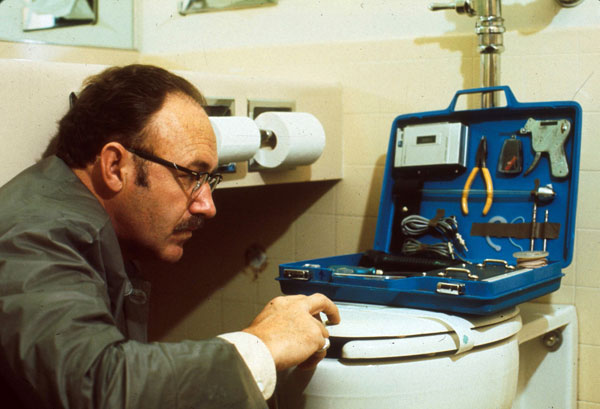 Both songs came out in the very late 1990s, both by musical artists I love (and started loving around the same time in the 1980s). Both songs are fun (and very much in character with their creators), but they couldn't be more different. And yet, both of these songs are about the exact same thing: the fact that Gene Hackman seemingly was in every movie that came out for a period of 3 or 4 years.
Both songs came out in the very late 1990s, both by musical artists I love (and started loving around the same time in the 1980s). Both songs are fun (and very much in character with their creators), but they couldn't be more different. And yet, both of these songs are about the exact same thing: the fact that Gene Hackman seemingly was in every movie that came out for a period of 3 or 4 years.
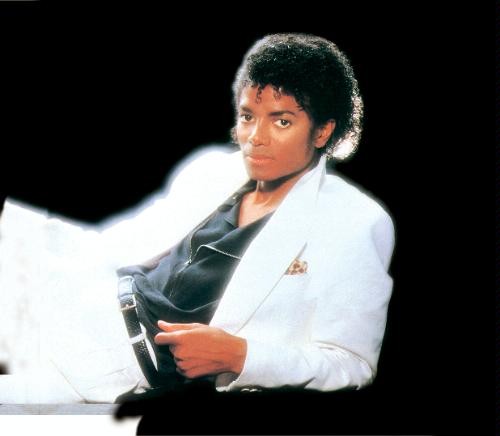
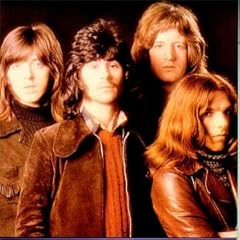 Now, rarely in history has a band seemed as doomed as Badfinger. Yeah, they were discovered by the Beatles, signed to Apple Records, had a hit off a song Paul McCartney wrote for them, appeared on John Lennon's Imagine album, George Harrison's Concert for Bangladesh, and on Ringo's "It Don't Come Easy" single. In addition, they had a string of hits -- power-pop masterpieces with chiming guitars and great harmonies -- that remain classics to this day. But they also had a manager who ran off with all their money, multiple lawsuits, and a record company that pulled one of their greatest records a week after its release (and its rave review in Rolling Stone), then rejected their next record (again for financial impropriety, and again a minor masterpiece). Pete Ham, the group's leader and chief songwriter was so despondent that he hung himself, declaring in his suicide note that the group's manager was a "soulless bastard." Years later, Tom Evans, the group's other major songwriter would hang himself after being sued by a promoter.
Now, rarely in history has a band seemed as doomed as Badfinger. Yeah, they were discovered by the Beatles, signed to Apple Records, had a hit off a song Paul McCartney wrote for them, appeared on John Lennon's Imagine album, George Harrison's Concert for Bangladesh, and on Ringo's "It Don't Come Easy" single. In addition, they had a string of hits -- power-pop masterpieces with chiming guitars and great harmonies -- that remain classics to this day. But they also had a manager who ran off with all their money, multiple lawsuits, and a record company that pulled one of their greatest records a week after its release (and its rave review in Rolling Stone), then rejected their next record (again for financial impropriety, and again a minor masterpiece). Pete Ham, the group's leader and chief songwriter was so despondent that he hung himself, declaring in his suicide note that the group's manager was a "soulless bastard." Years later, Tom Evans, the group's other major songwriter would hang himself after being sued by a promoter.  If I were an alien visiting from another planet (which, according to some of my friends, isn't that far from the truth), I'd think that "Exene" was an industrial solvent, maybe something that was added to
If I were an alien visiting from another planet (which, according to some of my friends, isn't that far from the truth), I'd think that "Exene" was an industrial solvent, maybe something that was added to 
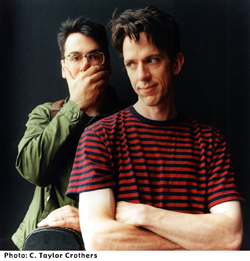 I'd been a They Might Be Giants fan going back to Don't Let's Start and thought their smart-ass geek-rock (with accordian) was often perfect. Plus, they name-checked the dBs and the Young Fresh Fellows on their new album (and had written a song about James K. Polk), so their bona fides were well established in my book.
I'd been a They Might Be Giants fan going back to Don't Let's Start and thought their smart-ass geek-rock (with accordian) was often perfect. Plus, they name-checked the dBs and the Young Fresh Fellows on their new album (and had written a song about James K. Polk), so their bona fides were well established in my book.  We were taking a class whose name escapes me. But we read Kierkegaard and Wittgenstein. And the professor apologized that we were reading 12 books in the semester since we easily could have spent an entire semester on any of those 12 books.
We were taking a class whose name escapes me. But we read Kierkegaard and Wittgenstein. And the professor apologized that we were reading 12 books in the semester since we easily could have spent an entire semester on any of those 12 books.